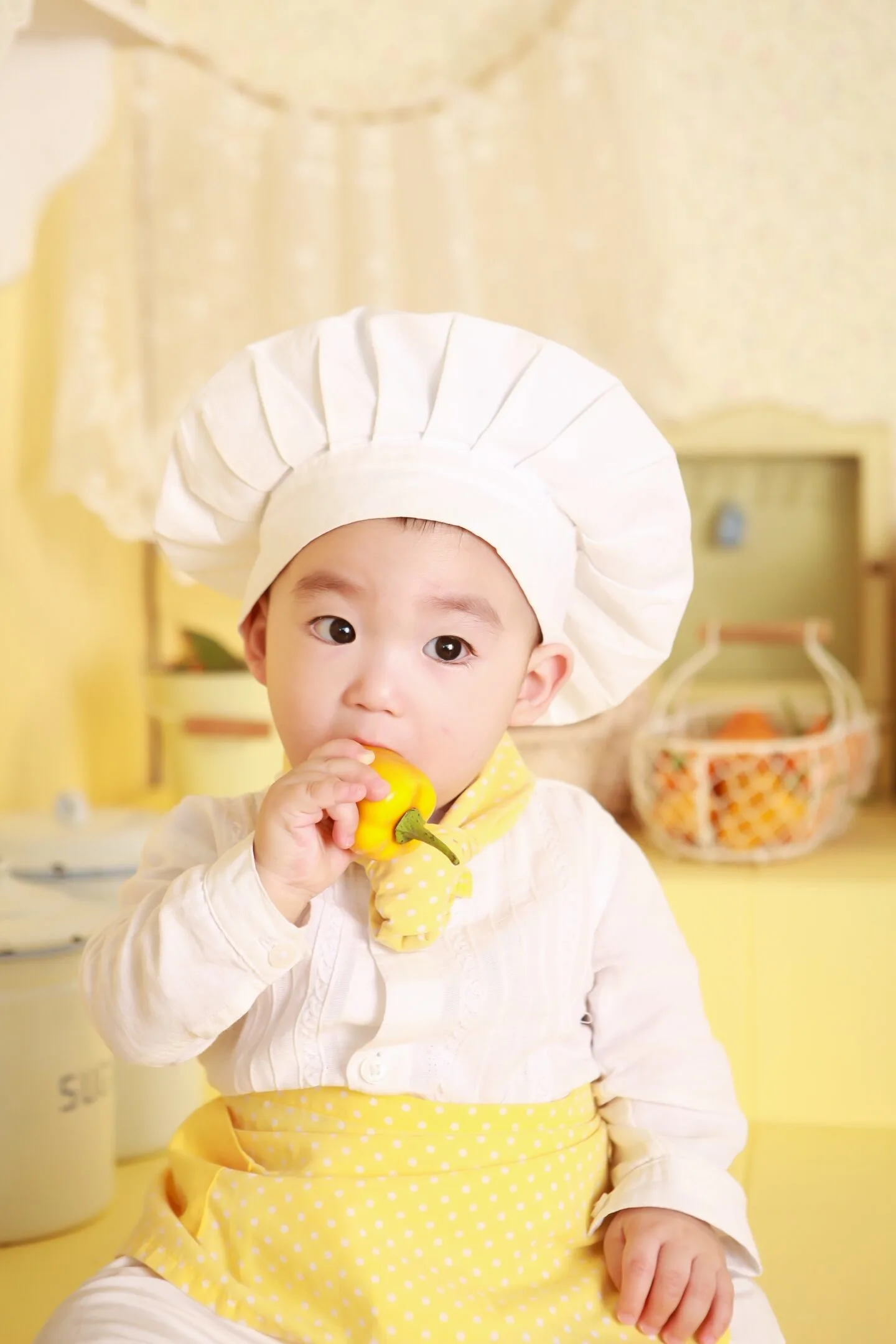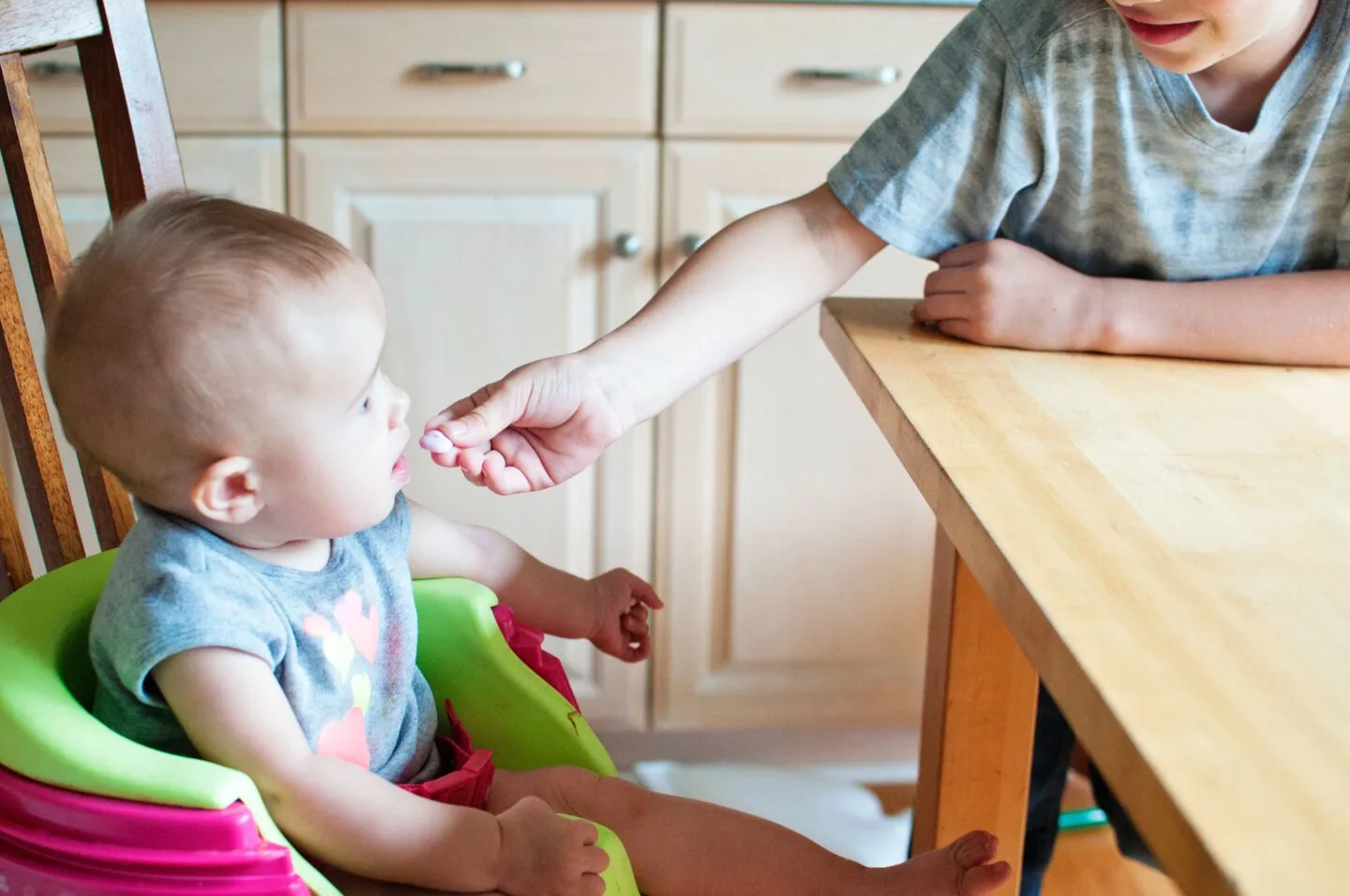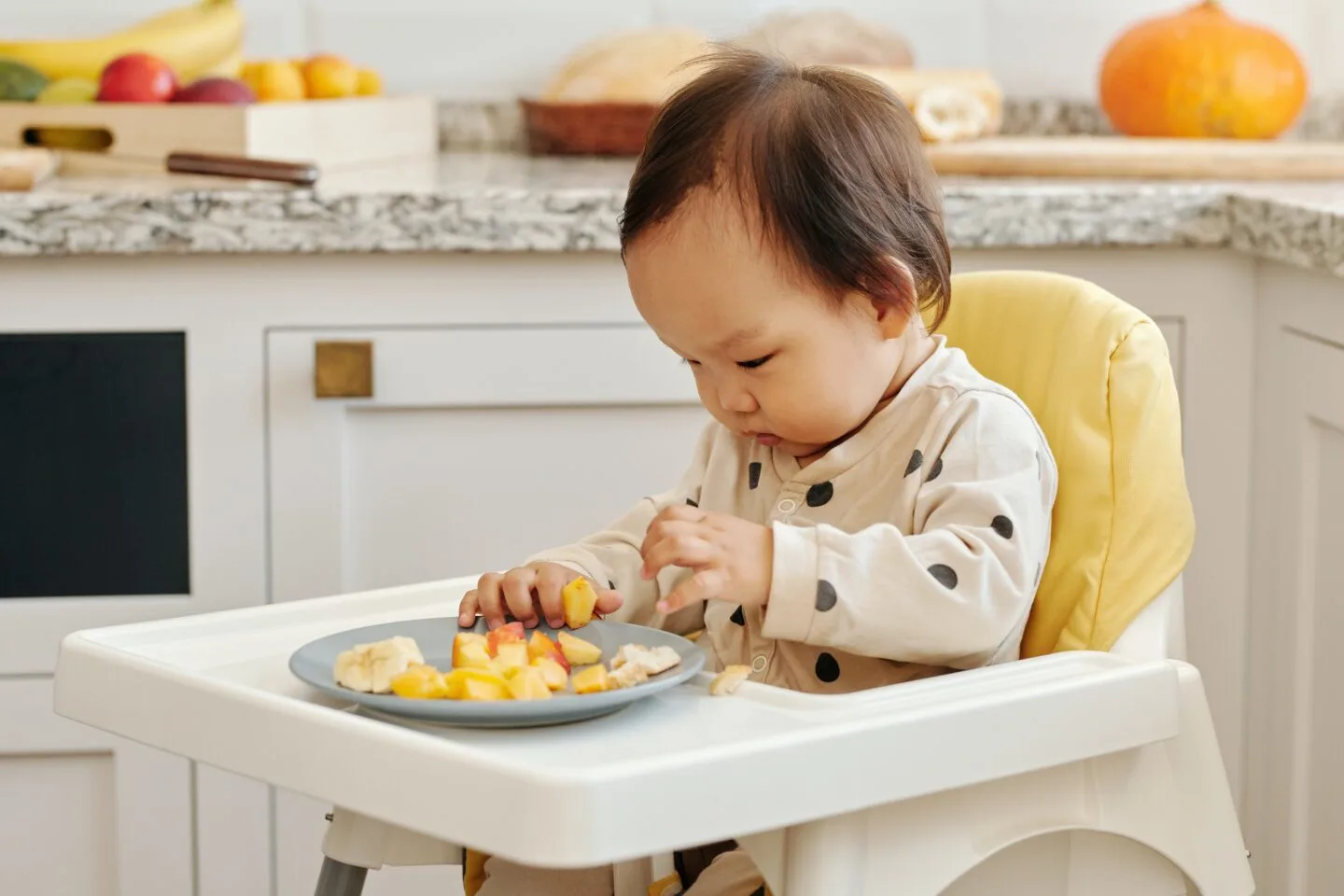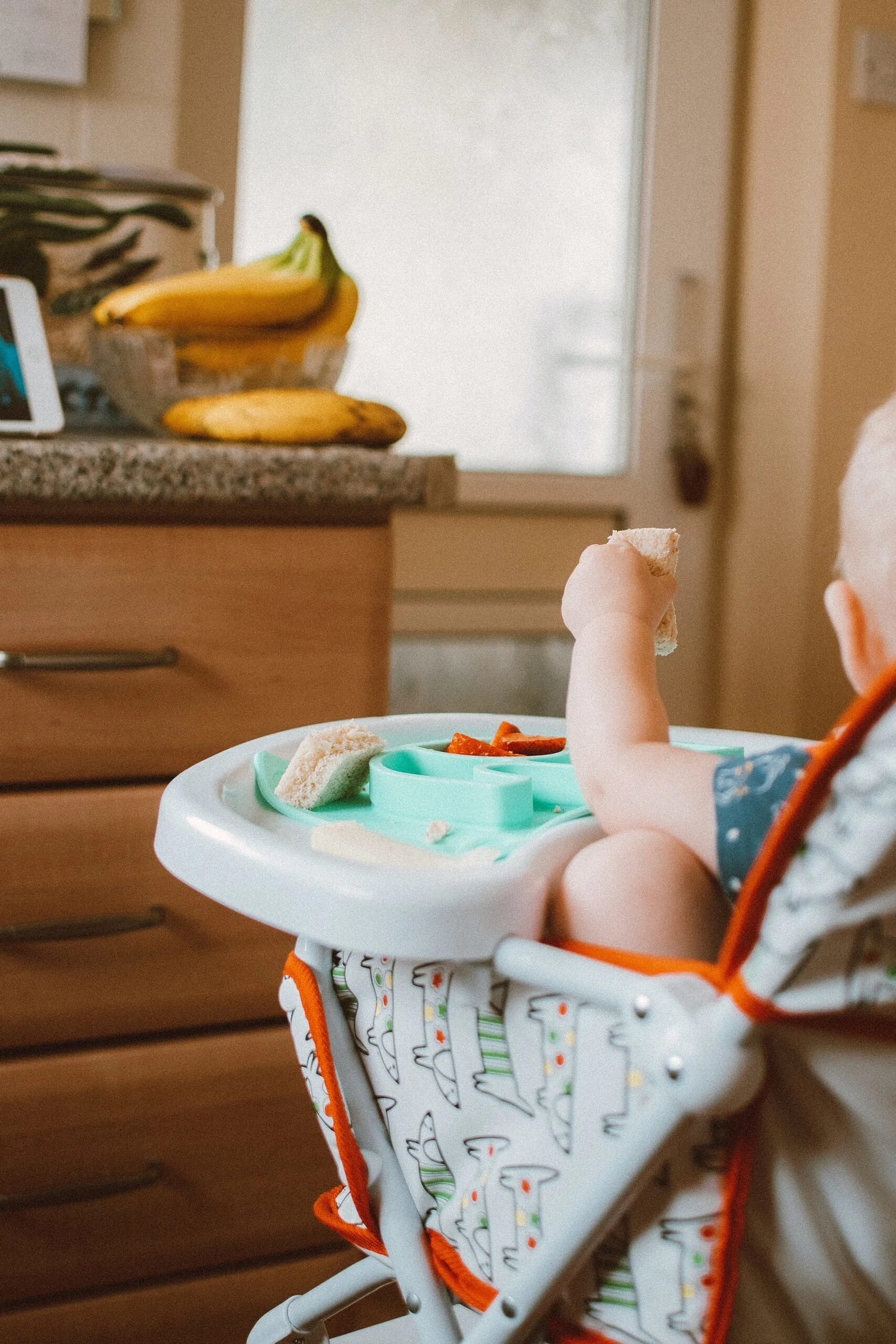Starting the weaning process is a big milestone for both the baby and the parents. It’s something that parents often pour a lot of research into, searching for information about certain foods, such as “can babies eat crumpets?” and looking into baby-led weaning recipes. As such, it can come as a real shock to discover that your baby won’t eat solids. It is actually incredibly common for babies to gag on solids, outright refuse food, or seem uninterested in the food in front of them.
Knowing that it’s normal for babies to seem disinterested in solids doesn’t mean that it will stop worried parents from dwelling on their baby’s eating habits. This leads us to the purpose of this article: what to do when your baby won’t eat solids.

Here’s what to do when your baby won’t eat solids.
It’s perfectly normal for babies to refuse to eat when they start experiencing solids for the first time. It is a common, yet stressful phase for parents to deal with, however, there are ways to work out why your baby is refusing to eat solids, and also some great methods that you can put into practice to try and encourage your baby to eat. In this article, we’re going to be looking at the following topics:
- Work Out Why Your Baby Is Refusing Solids
- Did Your Baby Used To Eat Solids But Suddenly Stop?
- How To Encourage Your Baby To Eat Solids
- Creating A Happy Healthy Eating Environment
Let’s take a look at each point in turn.

Work Out Why Your Baby Is Refusing Solids
One of the most common reasons that a baby won’t eat solids is that they’re simply not ready. If your baby is under the age of 6 months, they may not have mastered moving their tongue around and bringing toys to their mouth yet. Picking and chewing on toys is good practice for babies when it comes to learning how to eat, as they need to know how to pick up food and get it to their mouths. If your baby has just reached 6 months, or they’re closer to 4 – 5 months old, they are most likely not at the necessary stage yet.
Babies reaching the 8 month mark should be ready from a developmental standpoint, but some babies will still refuse. At this point, it’s probably more likely to be a sensory issue if your baby won’t eat solids, with most babies not enjoying the texture of foods. This doesn’t necessarily mean that your baby has any kind of sensory diagnosis, but it does mean that you’re going to need to take extra measurements to help your baby enjoy eating solids more.

Did Your Baby Used To Eat Solids But Suddenly Stop?
If you find your baby won’t eat solids anymore, despite having previously been happy to, there are several things that can commonly cause this disruption.
Sometimes, a teething baby won’t eat solids. Teething isn’t an enjoyable time for babies, and the swollen, red, painful gums and teeth are enough to put anyone off their food. If you have found that your baby used to eat well and has suddenly stopped, check to see if they’re teething. Try putting some teething gel or granules on their gums 15 minutes before their meal.
If your baby is feeling snuffly or has a cold, they may not want to eat. Just like adults, when we’re feeling a little under the weather, our appetite tends to decrease. Parents may not even notice this, but as a baby cannot communicate how their feeling, it’s common for little niggles like this to go unnoticed by parents.
Your baby is sick of baby food! Around 7 months of age, babies will want to explore more flavours and textures, so it’s entirely possible that your baby may be ready to branch out and explore new types of food. If this is the case, you could try looking into how to get started with baby-led weaning.

How To Encourage Your Baby To Eat Solids
If you’ve found that your baby won’t eat solids, one of the best things you can do is be a good model. Babies are like sponges and they learn everything they need to know about the world from watching and copying the people around them. A great way to encourage babies to eat solids is to have them join you at the table for family meal times. The more your baby sees everyone enjoying, laughing, and sharing their meals, the more they’ll want to be a part of it.
Another important factor to consider when trying to encourage your baby to eat solids is to make sure that they come to the table hungry. Babies are not going to start eating solids if they are coming up to meal times with a tummy full of milk. You don’t want your baby to be so hungry that they’re frustrated, but you will want to make sure there’s a bit of a time gap between their last drink of milk and their meal.
Be consistent and patient when trying to get your baby to eat solids. It can take time, but with plenty of encouragement and modelling from family members, your baby will eventually learn that food is tasty and fun.

Creating A Happy Healthy Eating Environment
If your baby won’t eat solids, try taking a look at the environment they’re in at meal times. Are there distractions? Does their bowl or plate keep falling from their highchair? Are they eating alone or with family members? In order to encourage your baby to eat solid foods, you need to ensure that you have created a happy and distraction free environment for them to eat in. Take away potential distractions like toys and the TV and turn eating into a social occasion.
Mess is an inevitable part of the weaning process, so be sure to check out our recommendations for the best bibs for babies, and if your child has a strong aversion to mess, try having a damp washcloth on hand to help clean up messy hands and faces.
It isn’t necessary for a baby to have a plate or bowl on their highchair, although it can help to keep foods separate and give parents a good idea of the portion sizes and food groups that they’re offering their children. We’ve reviewed a lot of the plates for babies that are on the market and you can see our recommendations in these posts: The Best Baby Led Weaning Plates and The Best Baby Led Weaning Bowls.

Additional Tips For Encouraging Your Baby To Eat Solids
Make sure that your baby is sitting in a comfortable and well-fitting chair. High chairs that offer support for baby’s feet can make a real difference when it comes to your baby’s comfort. If a baby is uncomfortable or slouched, this may be discouraging them from eating.
Consider the size and texture of the foods you’re offering your baby. Some infants may prefer to start off with purees, others may want to completely skip this stage and start with finger foods. Try feeding your baby a variety of flavours and textures, observing their reactions to these foods, and follow their lead.
When To Reach Out For More Help
When it comes to mastering solid food, babies need parents to be patient and encouraging. If your baby doesn’t seem terribly keen on eating the food in front of them but is happy to smash, squeeze, and play with it – that’s okay! Exposure to foods in this way helps them to learn more about them and explore them in their own time.
However, if your baby has reached the 9 month mark and is still entirely disinterested in food, it may be time for you to reach out to your health visitor or GP.

Conclusion
This blog post is full of useful advice for what to do if your baby won’t eat solids, however, if you find that you are struggling with the weaning process, it may be beneficial for you to speak to your health visitor or GP. Babies may shiver or pull faces when eating new foods, but that does not necessarily mean they don’t like it! Until you start introducing solids, all your baby knows is the texture and flavour of milk, so being patient and allowing them to explore a wide variety of foods at this stage is a great way to get them interested in meal times.
